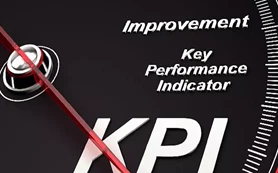Accelerating digital transformation in finance | Rob Binns | Webinar
How to adopt digital change in finance: key points covered in this webinar:
- The Access Group CFO, Rob Binns discusses the increasing need to adopt digital transformation and digital change more quickly in finance teams.
- 25% of finance professionals predict more investment in cloud accounting software as the rate and pace of change increases.
- How automation and technology can help to unlock potential in finance teams to drive added value for your business.
Webinar transcript
Why we need to adopt digital change in finance
[00:00:08] My name is Rob Binns, and I'm the CFO for The Access Group.
[00:00:11] We in finance can help accelerate digital change and digital transformation. What I'd like to talk about is how the need for digital transformation has really picked up the pace for us in finance.
[00:00:28] I think the pandemic that we've all been facing over the last 18 months has been a big catalyst for that change. As we all know, the COVID 19 pandemic caused a tremendous amount of upheaval for many businesses, many organisations over the last 18 months.
[00:00:46] The image shows a couple of stats that really help illustrate that fact that the pandemic has really forced the acceleration in the need for change and the adoption of that change. As you can see in the header there shattering the myths about how long it takes for organisations to react and to implement those changes.
[00:01:05] So the first one, for example, the increase in remote working and collaboration. The expectation was that this could take well over a year to increase that level of remote working and collaboration. As many of us know, that got massively shortened as we went through the global pandemic. Our own experience here at Access, as we move to remote working, we were able to get people up and running and working from home in just a matter of days and that really happened far more quickly than we would have anticipated before the pandemic.
[00:00:46] The image shows a couple of stats that really help illustrate that fact that the pandemic has really forced the acceleration in the need for change and the adoption of that change. As you can see in the header there shattering the myths about how long it takes for organisations to react and to implement those changes.
[00:01:05] So the first one, for example, the increase in remote working and collaboration. The expectation was that this could take well over a year to increase that level of remote working and collaboration. As many of us know, that got massively shortened as we went through the global pandemic. Our own experience here at Access, as we move to remote working, we were able to get people up and running and working from home in just a matter of days and that really happened far more quickly than we would have anticipated before the pandemic.
[00:01:43] You see that in other areas - whether or not that's the use of advanced technology in decision making, or whether or not it's moving to the cloud. The pandemic forced companies to think differently about how quickly they could make that change.
In all the cases here you see, the expectation was that these changes would take over a year. And as you can see, the reality is they've all been executed in a matter of days and we can debate whether or not the absolute numbers concern here are the right numbers. But the reality is you're looking at a complete step change in how organisations are reacting and that need and that requirement to adopt digital transformation and digital change more quickly.
The Five Rs of change
[00:02:28] McKinsey recently did a study that talked about how the acceleration of this digital transformation to support the new normal. What the new way of working is going to look like as we move forward here and they have characterised this survey around the five Rs. So you see them here on the chart: resolve, return, resilience, reimagination and reform.
[00:02:56] Many organisations have already reacted to this and have been adopting some of these things already. So if you think about resolve and resilience and return, this is all about the sorts of changes that many organisations, many finance leaders made at the start of the pandemic.
[00:03:15] So as an example, here at Access, a lot of the things that we used to do on a monthly or a quarterly basis, we accelerated to looking at things on a daily or weekly basis. The importance of cash flow, for example, clearly underscored as you go into the start of the pandemic and as you're trying to make sure that your business remains resilient, that your people are resolving the issues and coming together and continuing to operate as a business. Many of us would have done those things at the outset.
[00:03:49] Frankly, out of the need to just preservation - the need to keep the organisation running and moving forward. Making sure that we operate in the right stewardship and control over the organisation in what were incredibly difficult and challenging times. So a lot of those early steps that the McKinsey survey is calling for. A number of us as finance leaders would have already taken those steps.
Re-imaging technology and assets
[00:04:16] However, as you think about digital transformation, it's really important that CFOs and finance leaders in many groups and organisations, regardless of size, think about how you can re-imagine the technology and the assets that we have available. This will help us be ready for this new normal and this new way of working - the new way that businesses are going to have to operate.
[00:04:41] Whatever industry you're in, the pandemic has caused a different way of working. A hybrid environment for office based workers, for example, changes the supply chain dynamics for businesses, which are now dealing with new supply chain situations that didn't exist before the pandemic.
[00:05:02] We as leaders, we need to reimagine how technology can help us enable the business and support that new normal.
[00:05:10] And really the key here is that digital transformation and digital technology are the way forward. It’s the key that is going to unlock all finance teams and finance professionals. And it’s a way to think differently about how we support business moving forward.
How technology drives value for finance teams and CFOs
[00:05:27] One of the ways it does this is by inverting our focus – changing it - so we can focus on more value added activities. We see this in this slide. Historically, traditionally, people thought about finance as anchored in compliance and getting governance.
[00:05:49] As you move up the pyramid, you get to spend less and less time on those value added activities that are super important to organisations where we finance can contribute. What digital transformation and technology allows you to do is it automates a lot of the activities and tasks that are necessary around compliance and around governance.
[00:06:13] And it fundamentally allows us to change that focus - invert that focus - so that we, as finance leaders and finance teams, we can spend more time working on that value added activity. Thinking about how we can support the business, it enables us to be more effective stewards of the business - on the compliance and governance side were more effective or more efficient. We can use our skills and our time to focus on more of those value added activities.
Building resilience and adaptability during challenging times
[00:06:42] And if we reflect on the last 18 months, and on some of the things that we've all had to deal with, the change brought upon us meant that we had to focus on some important things to help the business make critical decisions at a time of crisis.
[00:07:01] Many organisations went through some very difficult and challenging times. Business leaders were looking for key data, key information, and value added support from a finance team to help them make the right decisions to navigate the pandemic and help their businesses successfully trade through what were very, very difficult times. The more as finance team and the leaders were able to provide that value added support, the better.
[00:07:30] So therefore, the less time that we spend on compliance and governance - not because it's not important, but rather because we've been able to do it in a very efficient and effective way - frees up our time. It inverts this focus to allow us to really help support the business. And as the quote said, it's already here we do it. It's just not evenly distributed by that, it means that we're not consistently all doing it as much as we would like in all areas of the finance function.
Unlocking potential for faster decision making
[00:07:58] So how can digital transformation and digital technology be the key to unlock, our ability to look at more and more value add activities is the finance team.
[00:08:07] The key thing is, as the quote quite rightly points out, it's all about being insights-led. If you think about what value-added activities are, it's all about what insights we can provide the business - that every business has to make every day, every week, every month. Where can we in finance really support that decision making process with good quality information, great insight?
[00:08:31] And the faster we can do that, the better. And so ultimately, the future of a finance organisation will be the one that is able to implement that insights-led approach sooner rather than later. And again, digital transformation digital technology will be the key to allow us to help us to do that.
A new focus on RPA
[00:08:53] One of the things that you'll hear a lot about is RPA - Robotic Process Automation. Often this gets interchanged with A.I. and other technology terms like this. And there's a lot of market hype and a lot of interest in this, and it's very valuable technology.
[00:09:14] The quote, as you see below is that this market is expected to grow significantly. And I'm sure it will. And, there are many things that organisations can do that improve efficiency and effectiveness by using RPA type tools.
"The RPA software market continues to see growth (over 62% growth rate in 2019). However, it is rarely purchased these days without additional spending on complementary technologies (ie. intelligent document processing, analytics, UX/CX, conversational platforms etc.)"
Gartner Predicts 2021: Accelerate Results Beyond RPA to Hyperautomation
[00:09:30] However, as the quote quite rightly points out, the reality is that often these things need complementary technology - they need other systems and solutions in order to help deliver value for an organisation. And so while you might hear a lot of talk in the marketplace about RPA, typically it works in an environment of complementary technology.
Automate processes to overcome challenges and tackle pain points
[00:10:01] Typically, you need multiple technology assets to help realise that value. And so the key here is how you can automate a number of your different business processes - a number of your different flows that will enable you to tap into some of these other complementary solutions that are out there in the marketplace. That’s a theme that we saw in the survey we did earlier this year around pain points for finance professionals.
[00:10:36] The slide below shows a few metrics based on a survey Access ran across many stakeholders and organisations to get their feedback, and to identify the pain points they were expecting to experience during the course of this year.
Now, as you might imagine, and you can see in the middle of the slide, COVID 19 has been the biggest disruptor to the bottom line. Clearly that speaks to some of the challenges that we've all faced over the last 18 months or so. But the thing that's quite interesting here is to tease out some of the other points.
[00:11:11] 65% have seen a change in their responsibilities and their tools due to remote working. We need different tools. We need different technology to enable them to be more effective.
[00:11:24] And there are things around training, for example, that are going to become more important. As we think about reskilling our finance teams, we need to consider:
- Is it reskilling them in the new technology they're going to need to use and adopt?
- Or reskilling them to focus on that value-added, insights-led approach?
Increased focus on cloud accounting software
[00:11:44] Looking back at the survey, a quarter of the participants are predicting investment in cloud accounting software. And that, to me, really speaks to that pyramid that we were talking about how do you invert the shape of a pyramid.
Getting a good, resilient cloud accounting software application that can help you with the day to day compliance and governance activities will enable finance professionals and finance leaders to focus on that more value-added activity.
[00:12:17] So a lot of things that many of you have experienced - the themes that were teased out of the McKinsey study - again are very much echoed in our own survey. A key focus being the idea of complementary technology and the need for multiple technology assets coming together to deliver solutions that will enable finance people to be more effective and more proficient. And I think we as teams, we are at the eye of the storm.
Ensuring finance teams can help businesses embrace change
[00:12:53] The last 18 months has been incredibly challenging and busy for many organisations, and it's forced teams to really prioritise what they can do to support the business. The business is trying to navigate through very difficult times, difficult trading periods. And finance is being forced to think about how can we help? What are the key decisions that we need to do? And we've really got to ruthlessly prioritise those activities in order to provide that value-added support.
[00:13:26] All the while changes are underway. We've all experienced these changes, change in working patterns, as I said earlier: changing supply chains, change in the way that businesses in many industries and verticals are being forced to operate. Embracing that digital transformation can have a positive effect on all parts of the organisation, not just finance. But it does help finance move more and more towards becoming that strategic partner.
[00:13:56] So, for me, the way I think about it is we're a piece of the puzzle. The digital transformation is happening all around us. It's happening in all the functions, all the disciplines within a business. But we need to embrace it in finance.
[00:14:10] We need to make sure that we're at the front end of it. We need to be reimagining the way that we think about the support that we provide. How can technology help and enable us, and then enable us to become a strategic partner - adding more value and helping us to think about how we can support the businesses that go through that difficult period?
[00:14:30] It has impacts all of us. And as you can see on the slide, we're going to have to think about how do we train our teams, how do we develop them, how do we coach people into this new way of thinking using the new tools? More importantly, how they can provide that insight led approach so it has an effect on us.
[00:14:48] Change is happening. It's happening to us. It's happening around us. But I think we need to embrace it. And I think we need to recognise it's out there. Embrace it. Figure out how we can support the business.
[00:15:00] Deliver it moving forward. And it will allow all of us as leaders and finance teams to contribute much more to helping the businesses, the wider business navigate this change and difficult situation that many people are still facing with the COVID 19 pandemic.
[00:15:18] Hopefully that gives you a sense of some of the things that are happening in the market. Some of the themes that we're seeing when we talk to finance professionals around the market, picking up on some of the other external surveys and things that are going on out there.
[00:15:34] I think it's a challenging time, but I also think it's a really exciting time. I think the rate of pace and change is increasing. I think that gives us tremendous opportunity in finance. And I for one, and certainly, I'm enjoying the opportunity to sort of take that situation, embrace it, take advantage of it and really help the organisation move forward.
The Access Group is a market-leader of powerful, feature-rich cloud accounting software. Book a free demo to see it in action, or download a brochure to find out more.
You might be interested in:
How to succeed as a Strategic CFO
Adopting a strategic approach may seem daunting, pick up some tips on what strategic should look like and how you can take your business to the next level.

New CFO checklist: 90-day plan
Learn more about your first 3 months as a new CFO and where to start with our 90-day checklist.

7 essential skills for a CFO
Have a read through the 7 essential skills for a CFO to make a positive and lasting impact in your organisation.

How to become a successful CFO
Take a look at the common traits shared by successful CFOs and the key elements and skills that will add to CFO effectiveness.

How a CFO can use Business Intelligence
Read how successful CFOs use Business Intelligence to drive company strategy and support finance operations.
Tips to help you lead a finance team
The Strategic CFO needs to deliver strong financial performance, and for this needs a strong finance team to support and align on those goals.

Structuring your finance team: best practices to follow
Understand the considerations and best practices to make when structuring your finance team.

11 KPIs your finance team should monitor
What are KPIs, and why should your finance team track them? Explore the top 11 KPIs your finance team should track and why.

How To Build a Highly Effective Finance Team
Learn how to build a finance team that will support the business’s financial growth, strategy and performance.

How to become a Finance Director
Read the key skills required of a Finance Director and the steps you should take to get there.
How can technology support you as a Strategic CFO
For any organisation to be successful it’s important to be able to identify when it’s time to change your strategy and drive your business forward.

The key signs it's time to change your business strategy
Explore the 3 signs of a poor strategy and how a modern, data-fuelled approach can make a difference.

Key signs it's time to change your accounting system
This webinar discusses the impact of under investment in software, why companies decide to change accounting systems, and how to choose the right supplier

The data-driven future of finance and why CFO's need to embrace it
Take a look at the role and the importance of data to gain a better understanding of the financial health of the business.

Guide to CFO software
Look at the software tools which are of most use to the modern CFO, as well as the latest technology trends to look out for.
